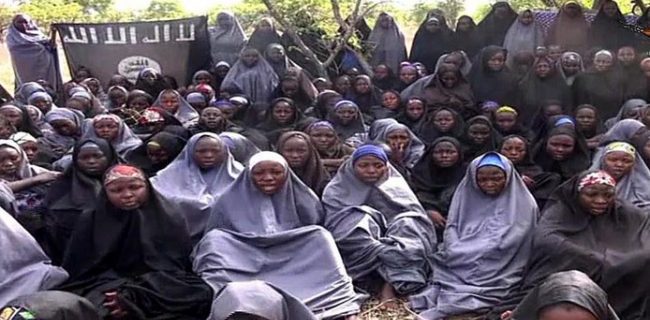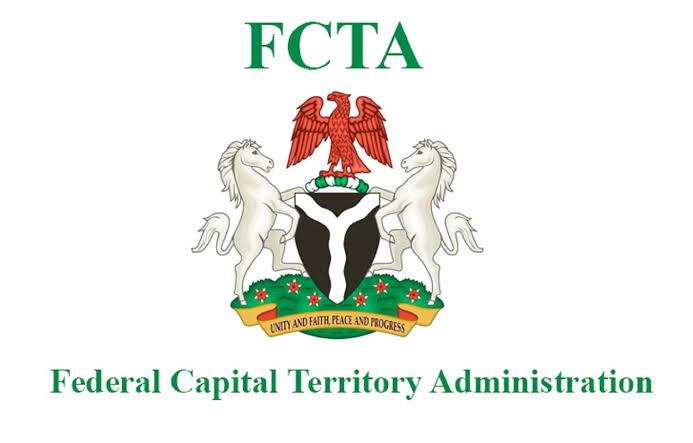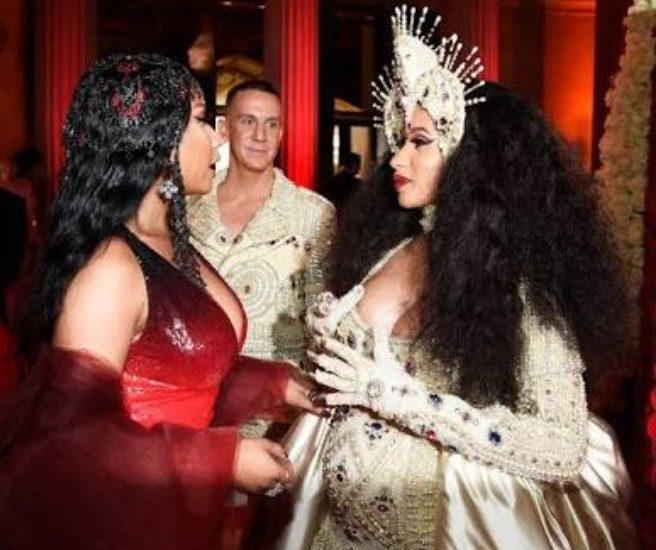On February 19, 2018, 110 female students out of 962 students were abducted from Government Girl’s Science Technical College, Dapchi, Yobe State, by Boko Haram terrorists.
What followed were conflicting accounts which many described as shameful.
The federal government through the Minister of Information, Alhaji Lai Mohammed denied that such incident had happened. It was until the foreign press spoke with the parents of the victims that the government retracted the statement and issued a public apology.
A few days later, there was another blunder on the part of government. It was announced that the girls had been rescued until the parents of the girls dismissed it as false.
The State Governor, Ibrahim Geidam, also announced that the girls had been found. A few days later, he retracted his statement. That angered the parents of the victims and also sympathisers of the victims. As a result, some aggrieved residents of Dapchi headquarters of Busari Local Government area of Yobe State, attacked Geidam’s convoy.
They booed and threw stones and other dangerous objects at his convoy, which resulted in the destruction of some vehicles.
Just like the Chibok girls situation in 2014, the army also moved out of the theatre of action before the girls were abducted. Also like 2014 the government was not straightforward with Nigerians. It took the government one week after the girls were abducted to set up a committee to find out what happened.
This recent tragedy would make many Nigerians easily recollect the abduction of over 276 female students from the Government Secondary School in Chibok town, Borno State in April 2014.
For almost three weeks after the girls were abducted, the president then, Goodluck Jonathan, began to react only when the powerful campaign of “Bring Back Our Girls” became global. Celebrities from all over the world lent their voices to the campaign. Alicia Keys, P. Diddy, Malala Yousafzai and even Michelle Obama to mention a few, all supported the cause.
Without pressure from the international community, the Nigerian government was ready to brush it aside as a political propaganda aimed at discrediting the government of the day.
Dame Patience Jonathan’s theatrics when she invited women from the North to her office regarding the issue is still fresh in the minds of many. She openly dismissed the abduction of the Chibok school girls as a hoax.
Read also: Lightning kills 16 in church
She saw it the same way most members of the ruling People’s Democratic Party (PDP) then, regarded it. To them, it was a grand plan by the opposition party to rubbish efforts by President Goodluck Jonathan in fighting terrorism. In the words of Festus Keyamo “They were so obsessed with power that any negative thing was viewed through the lens of politics.”
Unfortunately, while Nigerians were divided along ethnic and religious lines as a result of Boko Haram, they (Boko Haram) were united in their evil ways. Disunity emboldened them. Besides kidnapping children, they conquered many territories in the North East and hoisted their flags.
However, since President Muhammadu Buhari came on board in 2015, over 100 of the abducted Chibok girls have been released.
According to reports, all the territories have been recaptured by the Nigerian military. The government told the general public three years ago that “Boko Haram has been technically defeated.” Critics of this administration said it was only propaganda on the part of government.
In February, Nigeria’s highest authorities declared that Boko Haram had been finally contained.
Speaking during a Town Hall meeting in Maiduguri early this year, Minister of Interior, Abdulrahman Dambazzau described the group as “completely decimated.”
Rogers Ibe Nicholas, the Theatre Commander of Opertaion Lafiya Dole had this to say: “We have broken the heart and soul of Shekau’s group, taking over the camp and its environs,”
He added: “They are on the run and we are pursuing them to wherever they go. This time around there is no place for escape anywhere.”
This sad tale of the Dapchi girls’ abduction has proven skeptics right and the government wrong. It has shown that (Boko Haram) is very much alive and kicking.
The way the Buhari administration handled the Dapchi situation at the initial stage was heavily criticized by many Nigerians.
The Next Edition gathered that some parents of the girls were arrested as a result of their insistence that their daughters had been kidnapped.
To make matters worse, there have been claims and counter claims between the police and the military over who to blame for the lapse that led to the incident when they are supposed to work hand in hand to ensure the safe return of the girls. The blame game has not helped the situation. It further exposed the lack of synergy between agencies in the Buhari administration.
However, unlike the abduction of the Chibok girls, there is a better sense of hope that the girls would be returned safely to their wards.
One of the reasons is not far-fetched. Two weeks ago, the Barnawi faction of Boko Haram contacted human rights activist, Mrs Aisha Wakil, admitting it had in its custody the Dapchi school girls who were abducted last month.
The group also hinted that the girls might be released.
Wakil, popularly called Mama Boko Haram due to her closeness to many of the sect members told the revealed that the abductors told her that the girls were safe, healthy and in good condition.
Her words: “They were even the ones that called me, and said Mama we heard what you had said and told me that they were with the girls and they were going to release them.
“I begged of them and said please let this not be another 1,000 – plus days of Chibok girls, and they laughed and said no.
“I asked them whether I can come and stay with them (girls) for two days, but they did not say anything.
“I can assure Nigerians that they are fine so far they are with my son, Habib (Abu Musab Al-Barnawi), and his friends.”
Al-Barnawi is the first son of the late founder of Boko Haram, Mohammed Yusuf, who died in police custody in 2009.
With this revelation, many are hopeful that the girls would be released. The question is: In the first place why should the government, whose paramount duty is to protect lives and property allow over 100 school girls to be kidnapped barely four years after over 200 school girls were abducted in the same troubled region? Could it be that the government has not learnt any lesson?
Of particular concern too is the fact that, just like the kidnap of the Chibok girls, which came a year before the nation’s general election, the abduction of the Dapchi girls has also come a year to the nation’s next general election.
The similarities, many have said, are rather too many and made them to wonder if some unseen forces are actually not playing some devilish game.











